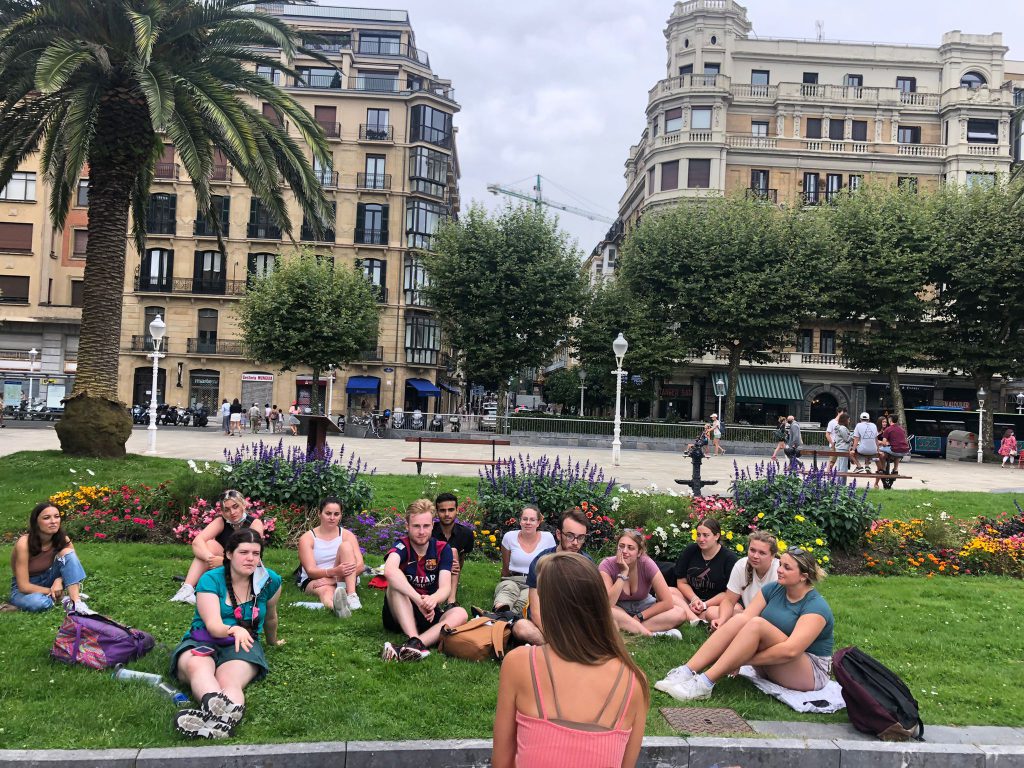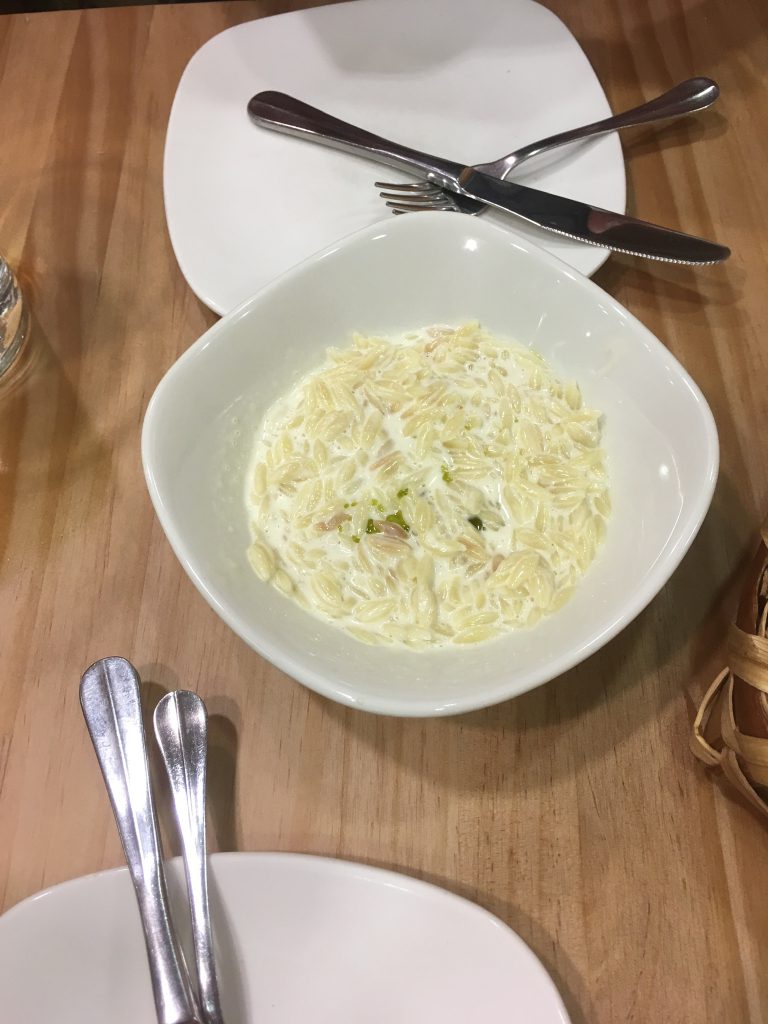“Where some cultures judge a dish primarily by look and then flavor, the Basques go a step further. They are on another wavelength, one where texture is an important quality of a dish.” – Marti Buckley, “Basque Country”
San Sebástian is a city rich in texture, which is seen in its architectural facade where modern day sensibilities of a clean silhouette are rarely seen, in its delicious food summed up so eloquently by Marti Buckley, and in its diverse history, full of strife and innovation. The former is plain to see with a simple walk around the city, which one will have plenty of opportunities to do even with the numerous buses serving as public transport and the easy access bike paths that also make San Sebástian wheel chair user friendly. After only a week and a half I feel ridiculous for wanting to take a bus back to the dorms where our group is staying, opting instead to talk the hour long walk along the beach and through the city. Although I do opt for it in the morning, especially to avoid the risk of running late. Or of running.
The latter is shared in Buckley’s book, arguably more than a simple cook book, it melds culinary text with a story of the Basque history. Buckley’s work stands apart not just because of the ease of the recipes and its thoroughness, whereas Spanish cookbooks assume a greater degree of familiarity with the dish, but at how it looks at the cultural context of Basque food, because it isn’t Basque cuisine without the culture. And, if some of the paragraphs before the recipes are to be trusted, without fresh quality sourced ingredients, but that’s not as easily accomplished as reading one of the many passages on Basque fishing.
The Author Herself
Sitting on the beach the other night, nursing a gelato and enjoying the sea air in solitude without a mask, I contemplated the talk with Buckley the previous day. We were the group of clearly clueless Americans sitting on some benches by the bikes, waiting for our professor and the author herself. She might have recognized the feeling, having journeyed to Spain for a semester abroad back when she was in college, and after asked to go to Madrid, instead thankfully getting placed in Pamplona ie Iruña, as the cities tend to be double-named in the Basque Country. San Sebástian is just as easily recognized as Donostia around here. Buckley said it was a good thing she got placed in Pamplona instead of Madrid, since it placed her in the Basque Country, and for another reason: it forced her outside of her comfort zone, as compared to big city Madrid, Pamplona is a small town, and she was more fully immersed in the experience.

From its conception, Basque Country was intended to be a culinary book geared towards American audiences, intended to introduce others to what Buckley herself had fallen in love with. To hear her tell it, she didn’t even like seafood before her first experience in a restaurant’s kitchen, although that night didn’t change that. It was almost an experience she didn’t repeat, although I’m sure most of the group would be able to say they’re happy she did.
Initially, Buckley did not feel herself qualified to write about Basque cuisine. Basques can’t even agree on how one goes about making a particular Basque dish, and that’s before you start going into the differences between the Spanish Basques and the French Basques. I can’t help but admire her dedication to doing Basque food justice. Too often people think ‘how can I avoid doing this wrong’ and not often enough ‘how do I do this right’, which seems like similar enough sentiments but are worlds apart, as the first is an avoidance of penalization, metaphorical or not, while the second is a commitment to excellence, transforming Basque Country into a labor of love, although it would take her a few years to get to the point where she felt confident enough to begin.
A Splash of Lemon
Basque Country was geared towards an American audience without sacrificing the qualities that made Basque food Basque. With cultural context provided to enlighten its readers, it didn’t make concessions in its recipes as it came to test, except for a few editorial suggestions. A few fish recipes call for a splash of lemon, and Buckley says that the Basque people think black pepper is a spicy additive, sometimes too spicy. Just because something doesn’t taste ideal for an American palate doesn’t make it bad food. We all can appreciate Basque Country for its look into the culture as well.

As an added bonus: were Buckley to have only one meal here again, she says that among the pintxos would be this risotto from Borda Berri, seen here.
